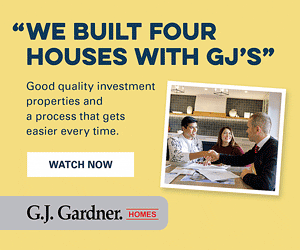Growing Success With Summer Collins: Chief AI & Data Director at One NZ
How do you define effective leadership?
Effective leadership, to me, is about creating an environment where people feel safe to challenge the status quo and explore new ideas. Early in my career at Air New Zealand, I experienced this firsthand during a time when innovation was truly encouraged. It gave me the confidence to suggest changes to long-standing practices—things people thought were untouchable, like self-service kiosks and seat-only fares—and those changes worked. That experience has shaped my leadership philosophy at One NZ: when people feel empowered to question, create, and take risks, extraordinary things happen. Over time, my focus has evolved from simply delivering results to enabling others to lead and grow with the same freedom and confidence.
What strategies do you use to build and inspire a high-performing team?
Build trust and connection. We are all human after all, as much as I might talk about AI, it’s people that matter most. I’ll never forget a moment when one of my team members, who had initially doubted their abilities, led a major project with outstanding results because they felt trusted and supported. By accepting people’s whole selves, the trust becomes real, and the results speak for themselves.
What roles do mentorship and networking play in your approach to leadership?
Networking as a working mum has been hard, but it’s always worth it when you manage to pull it off. I’ve been lucky to have incredible mentors throughout my career, including Jeff McDowall from Air New Zealand and One NZ CEO, Jason Paris, who have both provided invaluable guidance. Jason taught me to think big and take bold risks, while Jeff helped me understand the importance of stepping back to see the bigger picture.
How do you balance maintaining authority while fostering collaboration and inclusivity?
I’ve found that authority comes from respect, not position. As a woman who doesn’t always lead with traditional confidence, I’ve noticed throughout my career that it can take longer to gain that respect—but I think that’s okay. It has taught me the value of showing up authentically and consistently, even if others take a different approach. I aim to lead with clarity and decisiveness when needed, while ensuring that every voice is heard. Inclusivity breeds innovation, so I focus on encouraging open dialogue and creating psychological safety within teams to help people do their best work.
What is the most challenging obstacle you’ve faced in your career, and how did you navigate it?
Navigating a divorce and becoming a single parent while balancing my career was one of the most challenging experiences of my life. I decided to step back from my career but not entirely step out, and I was fortunate to have people who trusted me enough to offer part-time work and consulting opportunities. This flexibility allowed me to focus on being present for my daughter while staying engaged professionally. It was a period of growth that taught me the importance of leaning on a support network and knowing that by making this decision now, it doesn’t mean I’m choosing this forever.
How do you maintain resilience and focus during periods of uncertainty or failure?
I anchor myself by focusing on the “why”—the bigger purpose driving the work. Leaning on my support system, whether it’s my team or my family, also helps me regain perspective. Also, I genuinely love what I do almost every day. I’ve learned to embrace uncertainty as part of growth and treat failures as data points rather than end points.
What are your go-to strategies for managing stress and avoiding burnout?
Gah! Don’t ask me—I can assure you I’m no expert at this! But I’ve learned that when my brain is in overdrive, thinking more is never the answer. I remind myself to breathe, take a walk, and notice the simple joys—the birds singing, my children laughing. My husband is my daily reminder too! These small moments bring clarity, and while it’s a work in progress, they help me reset and stay grounded.
Can you share a time when you turned a significant setback into an opportunity for growth?
Early in my career, I chose a manager role at a company over a “doer” role in what would have been an amazing company. On paper, it felt like the right move—it seemed like a step up the ladder. But I quickly realised that chasing titles wasn’t the same as pursuing meaningful growth and loving what I did. That experience taught me to be more intentional with my career choices, focusing on opportunities that align with my values and where I can make the biggest impact, rather than just chasing progression for its own sake.
How has your perspective on resilience changed as your career has progressed?
My perspective on resilience has evolved from thinking it’s about sheer grit to realising it’s more about adaptability, prioritisation, and knowing when to take a step back to recalibrate. Earlier in my career, I felt pressure to push through challenges no matter what, but I’ve learned that true resilience is being self-aware enough to pause, reassess, and lean on others when needed. It’s also about finding strength in the lessons and connections formed during tough times.
What habits or routines have been instrumental in your personal and professional growth?
Making time for reflection has been a game-changer. I regularly step back to ask myself if I’m aligned with my goals and purpose. Lifelong learning—whether through formal education, reading, or engaging with others who challenge my thinking—has also been key. And, while it’s not a “habit” in the traditional sense, prioritising time with my family, and making sure I’m there for some of the mundane stuff like making sure I drop off or pick up the kids always gives me a boost.
How do you stay motivated and continually strive for improvement in your career?
Staying motivated comes down to purpose for me—knowing that the work I do can make a difference, whether it’s for my children, my team, or others in Aotearoa. I also set goals that stretch me out of my comfort zone, surround myself with inspiring people, and stay curious about new ideas and technologies. I love learning and it really motivates me.
What advice would you give your younger self when you were just starting out?
So many things! How long do you have?
Trust your instincts more—they’re better than you think. Build strong relationships; they’ll carry you through challenges and open unexpected doors. Don’t feel pressured to follow a linear path or have a five-year plan. And don’t give in to mum guilt—it’s okay to prioritize family, just as it’s okay to have a full-time nanny. You can have it all, just not all at once.
What role does feedback play in your journey of self-improvement, and how do you approach it?
Feedback is never easy, and one of the toughest pieces I ever received was when a boss clearly articulated, “What got you here won’t get you further.” It was a bitter pill, but one I chewed and eventually swallowed. That moment taught me the importance of evolving and not resting on past successes. While feedback can be uncomfortable, it’s essential for growth—I now see it as a chance to recalibrate, push my boundaries, and get closer to the leader I aspire to be.











